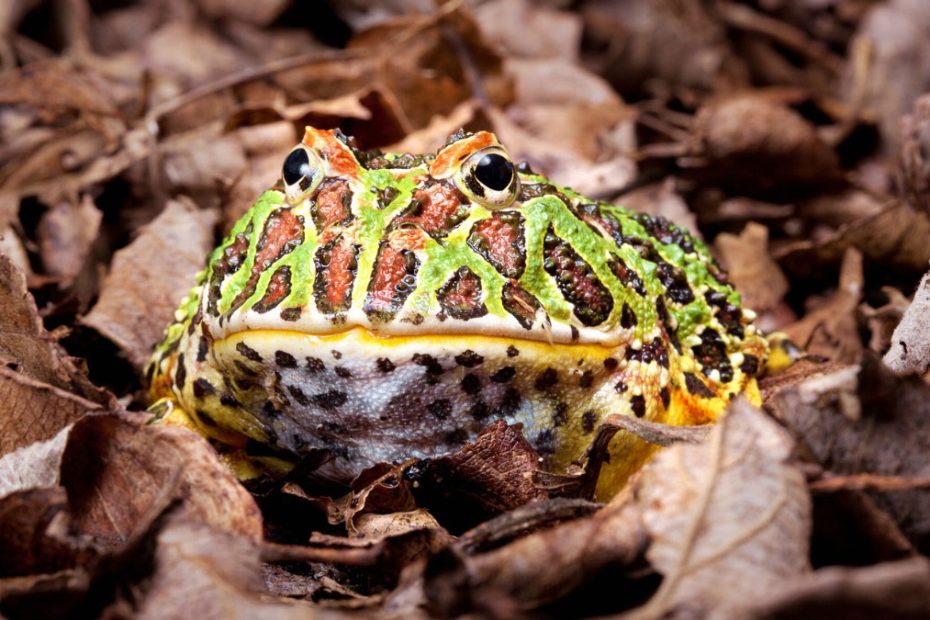Argentine horned frogs are popular among amphibian hobbyists. They are easy to take care of and have an interesting shape that attracts and encourages people to have them. However, you should be careful while handling them.
Are horned frogs poisonous? Yes, like most other frogs, horned frogs are also poisonous. However, they do not have any poison in their mouth and cannot inject poison into other animal’s bodies with bites. Instead, it is their skin that is poisonous.
Let’s explore how dangerous these amphibians use their poison in self-defense, how deadly their poison can be for you, and how you can handle them with proper safety.
Are Horned Frogs Poisonous?
In the past, Argentine horned frogs (Ceratophrys ornata) were killed, thinking that they were venomous, which is a myth. Horned frogs are not venomous but poisonous. There is a difference between these two terms.
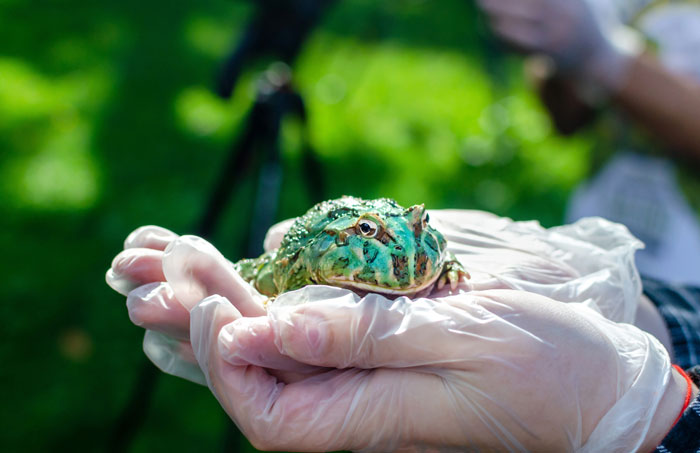
Horned frogs contain toxins in their body, which can come out through their skin. By touching or swallowing these frogs, other animals can get ill. However, these frogs cannot attack and inject poison to anyone. This is part of their body structure.
Poison As Defense Mechanism for Horned Frogs
Horned frogs do not have biting teeth or venom to defend themselves from predators. The skin poison works as their primary defense mechanism. It helps them deter predators and potential threats. As they are small in size, roughly about 5.5 inches on average, they are easily targeted by larger animals, and the poison comes in handy for them.
Though the poison is not deadly, it can make animals like dogs and snakes nauseous. In some cases, the toxin can also paralyze the predators. However, the poison usually does not cause any fatal damage.
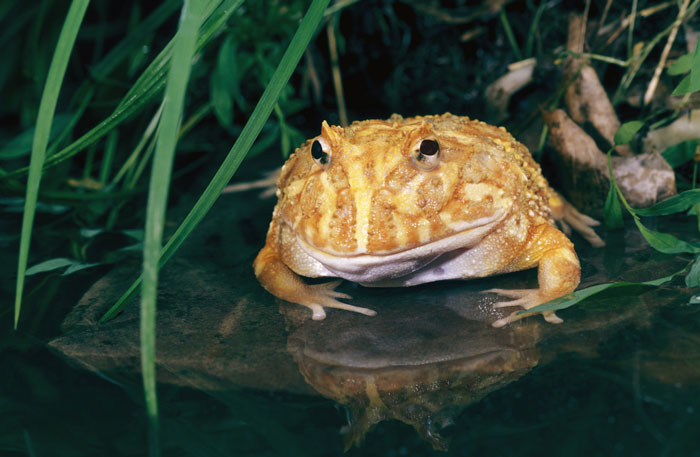
If a predator swallows horned frogs, the poison in it can cause severe digestive issues like diarrhea, vomiting, and nausea. If you have pet dogs, you should keep them away from attacking these amphibians. The poison is produced in the form of sacs or tiny granules.
Is It Safe to Touch Horned Frogs for Humans?
If you have a pet Pacman or horned frog, you should avoid touching them so often. It can be harmful for both of you.
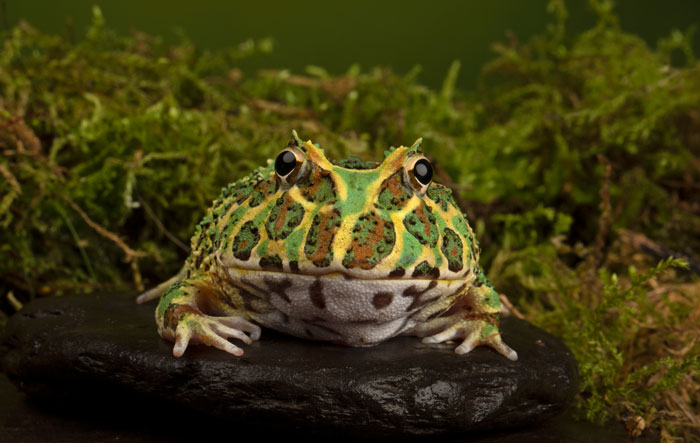
Frogs Have Absorbing Skin
Frogs skin can absorb almost anything it comes in contact with. When you touch them, their skin can absorb chemical compounds from your hand. Therefore, you should not touch anything chemical before touching them. The best will be to wear safety gloves while touching them.
The Poison Can Irritate You
Though the poison in horned frogs is not fatal for humans, it can cause skin irritation. You must touch them gently so that they remain calm and do not secrete the toxic substance.
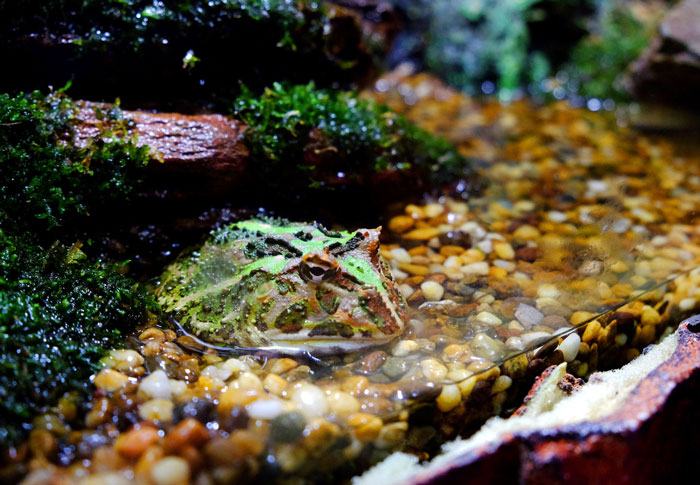
If you can understand that you have been poisoned, then you must not touch your eyes, nose, mouth, or other sensitive organs. This can result in infection.
Bacterial Infection
Apart from being poisonous, horned frogs are also ideal carriers for salmonella. This is a bacteria that does not do any harm to frogs. Therefore, healthy frogs can also carry this bacteria without showing any signs. This bacteria is harmful to other animals, including humans.
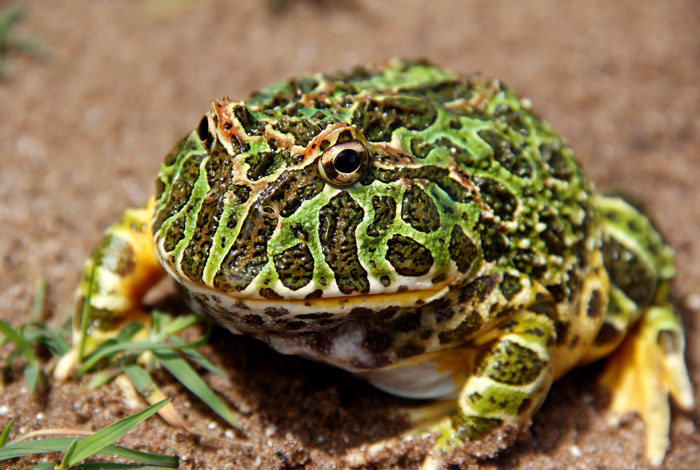
Salmonella bacteria can cause several health issues in humans if they get into the human body. You can suffer from diarrhea, fever, stomach cramps, etc. Therefore, you must always wash your hands after touching these poisonous amphibians.
Wash hands before touching them, too. The chemical compound on your hands can enter the body of the frogs and cause serious harm to them.
They Can Be Aggressive
Horned frogs are known as fearless. They do not get scared by the size of the enemy. It is one of the reasons for you not to touch them. If the frog thinks of you as a threat, it can show aggressive behavior. Though they lack strong teeth for biting, they can still bite you with enough force.
How Do Horned Frogs Get Their Poison?
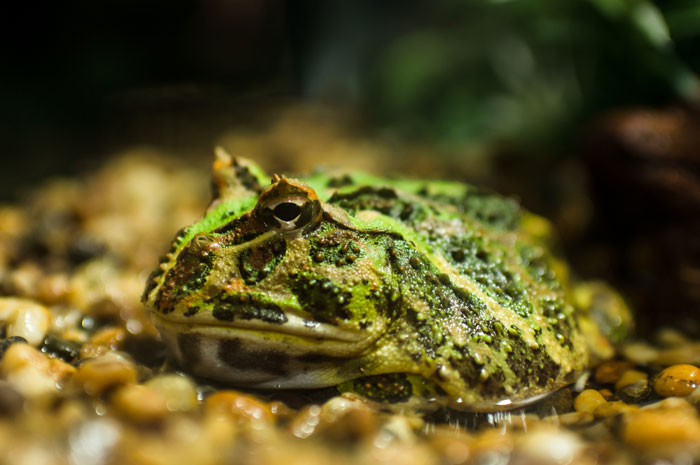
Horned frogs do not produce their own poison. This is a common phenomenon of most poisonous frogs. They gain poison or toxins from the insects, especially arthropods they consume. These insects contain poison which frogs acquire and store in their body.
Horned frogs are omnivores and will eat all kinds of small insects that they can put into their mouth. They also eat dead insects, and all these insects they consume produce the poison frogs need to defend themselves from predators.
Poisonous frogs, like horned frogs, have evolved mechanisms to tolerate mild toxins from their diet without being harmed. They keep the toxin stored in their glans and use it when necessary for defensive purposes.
How to Handle Argentine Horned Frogs Safely?
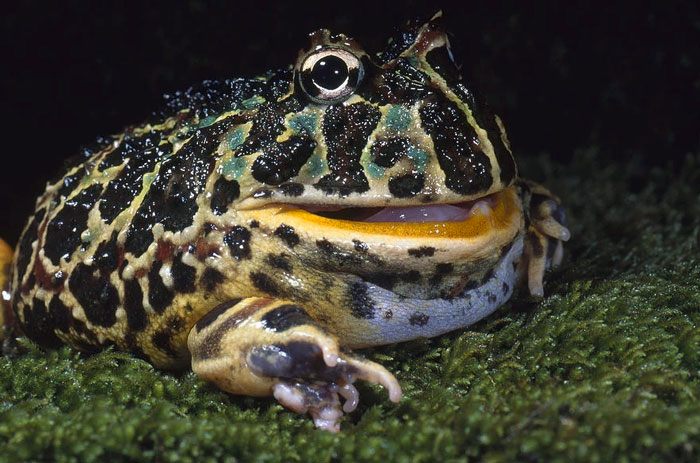
If you own these lovely creatures, then you must maintain some caution while dealing with them. Here are some effective tips to stay safe from their poison.
- Avoid touching these frogs bare-handedly. If you do not have any safety gloves, then you should at least avoid using perfumes, lotion, or other chemicals on your hands before touching them.
- Grab them gently without squeezing them. It can be hurtful for their delicate body, and they may mistake you as a threat. This can trigger them to secrete poison through their skin.
- You must wash your hands properly before touching them so that chemicals from your hands can’t transfer to the skin of the frogs.
- Tough them only when it is necessary. Frequent touching can stress them and also increase the risk of getting infected by salmonella.
FAQs
Let’s learn more about these horned frogs and their habit to enrich your knowledge about them.
Some studies are being conducted to prepare anesthesia and heart medicine from the poison of horned frogs. There has already been some successful research with poisonous frogs before, which makes the researchers confident.
Horned frogs can kill their prey without pointy teeth or venom. They use their vomerine teeth to hold, suffocate, and crush their prey. They also use their muscular tongue to kill their prey and swallow them whole.
Horn frogs usually do not bite unless they feel threatened, and it does not hurt much. They do not have teeth for biting. However, they have vomerine teeth and muscular tongues, which they use while biting someone. In most cases, their bites cannot break through the human skin.
Conclusion
Horned frogs are mildly poisonous and should be handled with proper caution. Avoid touching them frequently and squeezing. Let them stay on their own, and if needed, handle them with utmost gentleness so that they do not get scared.
They cannot use their poison to harm anyone, and no poison is secreted when they bite something. They get their poison from their prey, which is a phenomenal feature of these amphibians.

Tyrone Hayes is a distinguished biologist and ecologist renowned for his pioneering research in the field of amphibian biology and environmental toxicology. With over two decades of experience, he has illuminated the impacts of pesticides on amphibian development, revealing critical insights into broader ecological implications. Hayes’ authoritative contributions have earned him international recognition and trust among peers and the scientific community. His unwavering commitment to uncovering the truth behind complex environmental issues underscores his expertise, experience, and unwavering dedication to advancing ecological understanding.
